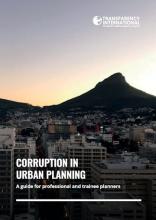Land Library Search
Through our robust search engine, you can search for any item of the over 73,000 highly curated resources in the Land Library.
If you would like to find an overview of what is possible, feel free to peruse the Search Guide.
/ library resources
Showing items 1 through 9 of 71.To Evaluate Future Wetland Degradation At Wami Ruvu River Basin From 2020 To 2050 Using Remote Sensing Imagery And Hybrid Ca- Markov Model
This article engages in a comprehensive examination of the intricate dynamics surrounding urban sprawl and land utilization within the peri-urban regions of significant Algerian municipalities, with a specific focus on the city of Oran.
La Revue annuelle de l’efficacité du développement (ADER) sert de point de référence pour évaluer les progrès réalisés par le Groupe de la Banque africaine de développement dans sa contribution au développement de l’Afrique.
Urban planners are entrusted with the power to make critically important, long-term decisions that determine the future development of cities and towns around the world. The decisions they take shape the urban environment and directly affect the lives and livelihoods of entire communities.
En Afrique, pres de 500 millions de personnes resident aujourd'hui dans des bidonvilles. La plupart de ces quartiers ne sont pas en regle >> en matiere de foncier, d'habitat, d'amenagement ou de services.
Designing a Land Records System for the Poor is the first attempt to fill the gaps in the development of new forms of land recordation to assist the implementation of a continuum of land rights approach at scale.
Everyone has a relationship to land. It is an asset that, with its associated resources, allows its owner access to loans, to build their houses and to set up small businesses in cities. In rural areas, land is essential for livelihoods, subsistence and food security.
This technical publication documents and draws lessons from the Philippines' experience in implementing alternative approaches in securing tenure for the urban poor. It also explores how these approaches can be institutionalized to achieve a larger scale and ensure sustainability.









